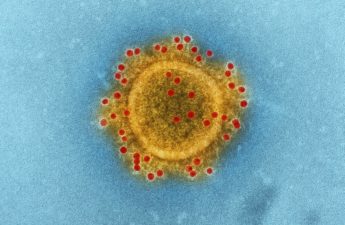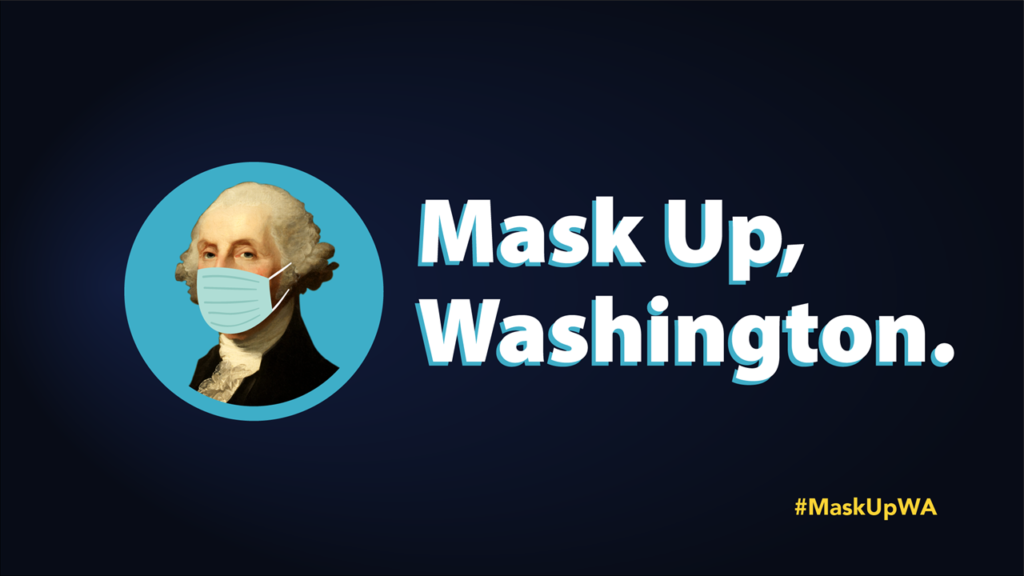
From the Washington State Governor’s Office
Gov. Jay Inslee and Secretary of Health John Wiesman today announced changes to “Safe Start,” Washington’s phased approach to reopening. The changes target activities that data have shown provide a higher risk of COVID-19 exposure.
It has been four months since the governor announced the state’s “Stay Home, Stay Healthy” order. Since then, cases in Washington have risen from 2,000 to almost 50,000, and deaths have increased from 110 to nearly 1,500.
To combat the rising numbers, the governor and secretary are changing guidance and regulations around restaurants, bars, and fitness centers, as well as weddings and funerals. The changes will also affect family entertainment centers, movie theaters and card rooms.
“We do not take these steps lightly. We know every prohibition is a challenge for individuals and business owners,” Inslee said during a press conference Thursday. “But we know that if we fail to act, we expose people and businesses to even greater risk down the line.”
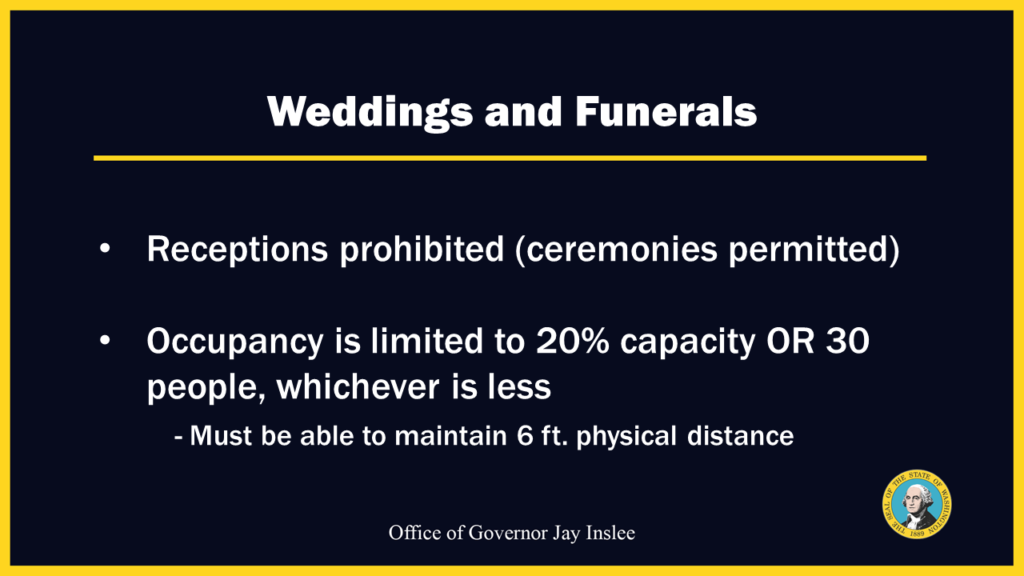
Weddings and funerals
Under the new guidance, ceremonies will remain permitted, but receptions are prohibited. Ceremonies must adhere to current guidance; for all phases, maximum indoor occupancy is 20%, or up to 30 people, whichever is less, as long as social distancing can be observed.
The changes will take effect in two weeks, on Aug. 6, providing a grace period for weddings and funerals previously scheduled to take place or readjust their plans.
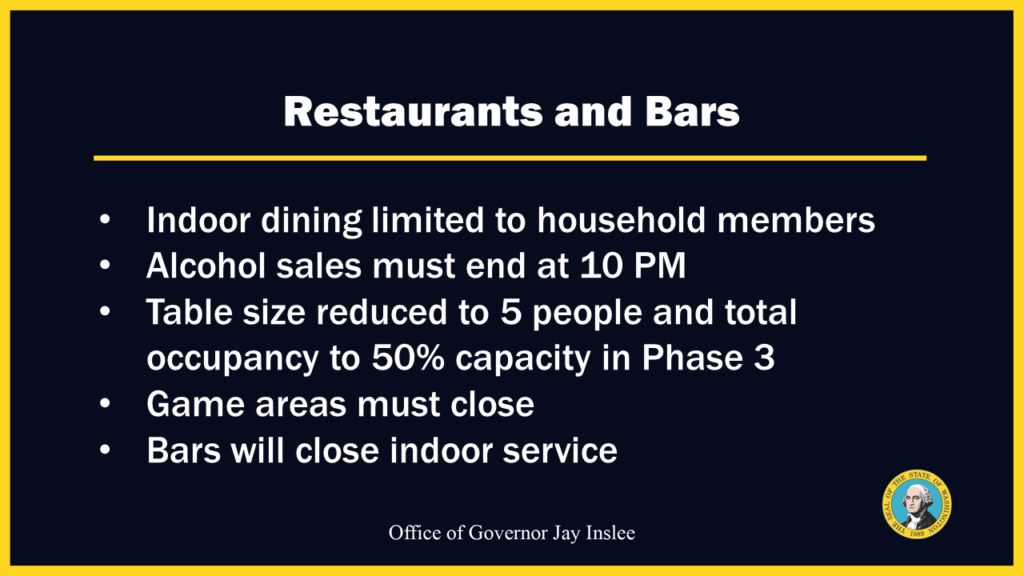
Restaurants
Restaurant guidance will now require parties to be members of the same household in order to dine indoors. Outdoor dining and take-away remains available for small parties from different households.
Table size for dine-in in Phase 3 will be reduced to five individuals and occupancy reduced from 75% to 50%.
Restaurants must also close gaming and social areas, such as pool tables, dart boards and video games.
Bars will be closed for indoor service, but can continue outdoor service. Alcohol service inside of restaurants must end by 10 p.m.
These regulations take effect in one week, on July 30.
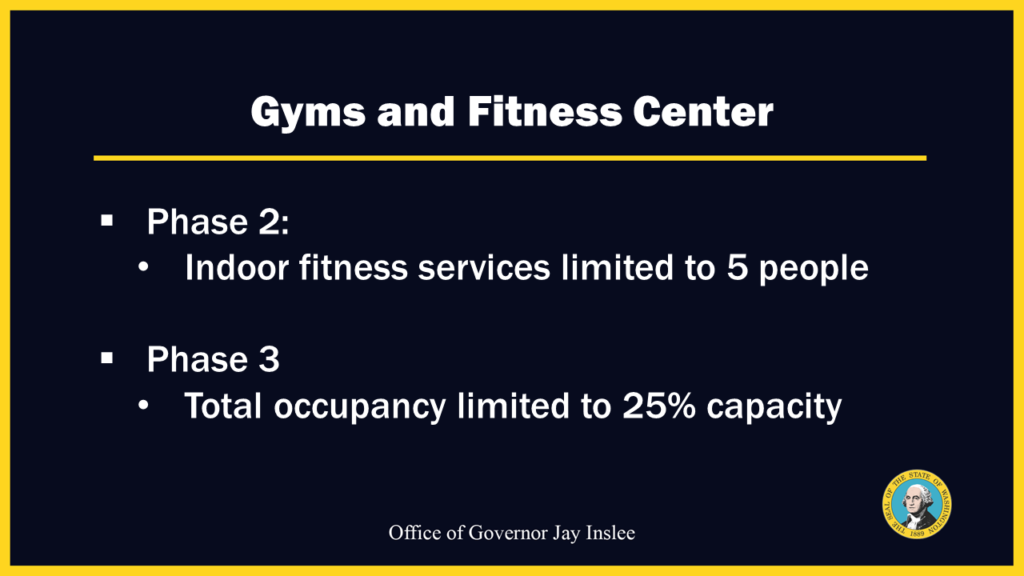
Fitness centers
The number of individuals allowed to use fitness centers and other physical health venues at a given time will also be reduced.
In Phase 2, only five individuals — not including staff — will be allowed for indoor fitness services at a time. This includes gyms, fitness studios, and indoor pools, ice rinks, volleyball courts, and tennis facilities. These are limited to small group instruction or private training.
Fitness center occupancy in Phase 3 will be reduced to 25%. All group fitness classes are limited to no more than 10, not including the instructors.
The changes are effective July 30.
Entertainment regulations
Indoor family entertainment and recreation centers — like mini golf, bowling alleys, and arcades — are prohibited from opening, as well as indoor card rooms. Indoor movie theater occupancy will be reduced from 50% to 25% in Phase 3.
Face covering requirements to expand.
In addition to those changes, Wiesman announced an expansion of his face coverings order that will go into effect Saturday, July 25.
The expansion will require face coverings in all common spaces, such as elevators, hallways and shared spaces in apartment buildings, university housing and hotels, as well as congregate setting such as nursing homes.
“We’re losing the momentum we had during the early months of this response,” Wiesman said. “Looking ahead to the fall and hopes of schools reopening, we must dig back in to regain control. Fewer, shorter, and safer interactions are crucial. Staying home is still safest but if you go out, keep it quick, keep your distance from others, and wear your face covering.”
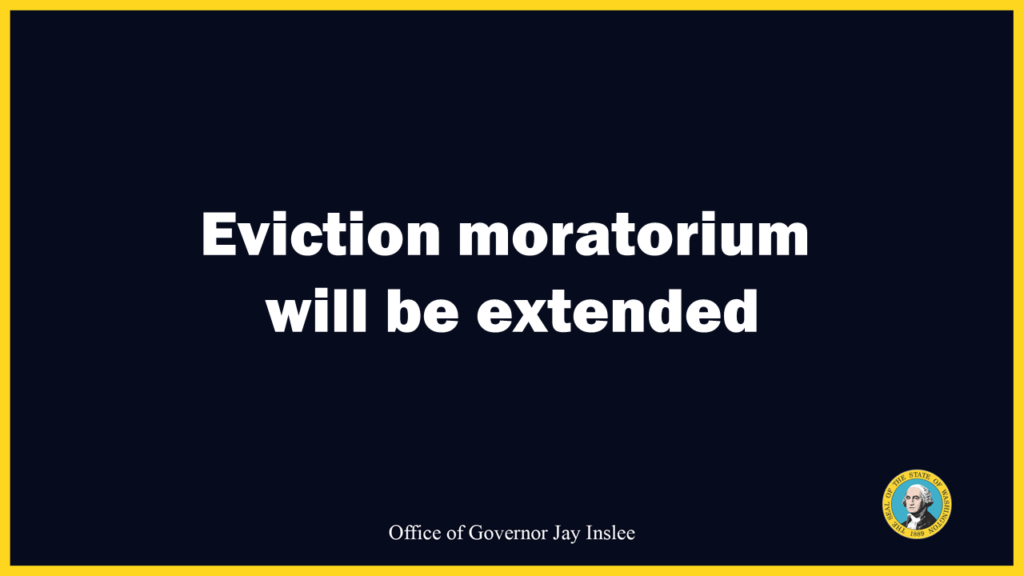
Eviction moratorium extension
Inslee also announced an extension of the state’s eviction moratorium to Oct. 15. Details on the extension will be released in the coming days.
In addition to the moratorium, the extension also directs Governor’s Office staff to convene an informal work group of landlords and tenants to discuss potential changes to the order in the short-term and long-term as the pandemic progresses, including the prospect of rent increases.
“I know we are all tired of how long this emergency has gone on, and the pain it has inflicted in our households and our communities,” Inslee said. “But we all remain steadfast in our refusal to allow COVID-19 to overwhelm our society, and we will lean on each other to get the job done. This is not the easy thing to do, but it is the right thing to do. These prohibitions are part of our approach, but they only supplement what we really need, which is for individuals to continue to make safe decisions and adhere to healthy practices.”


